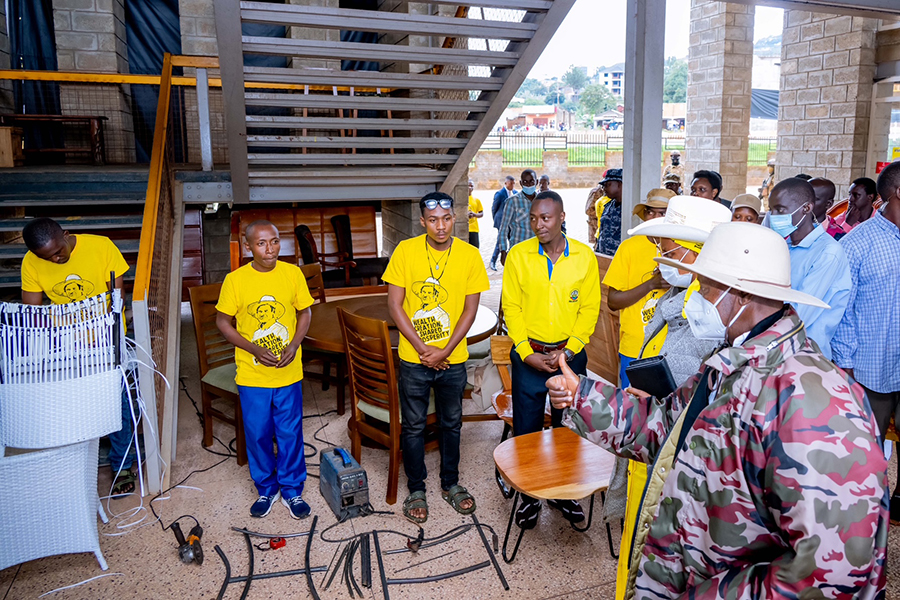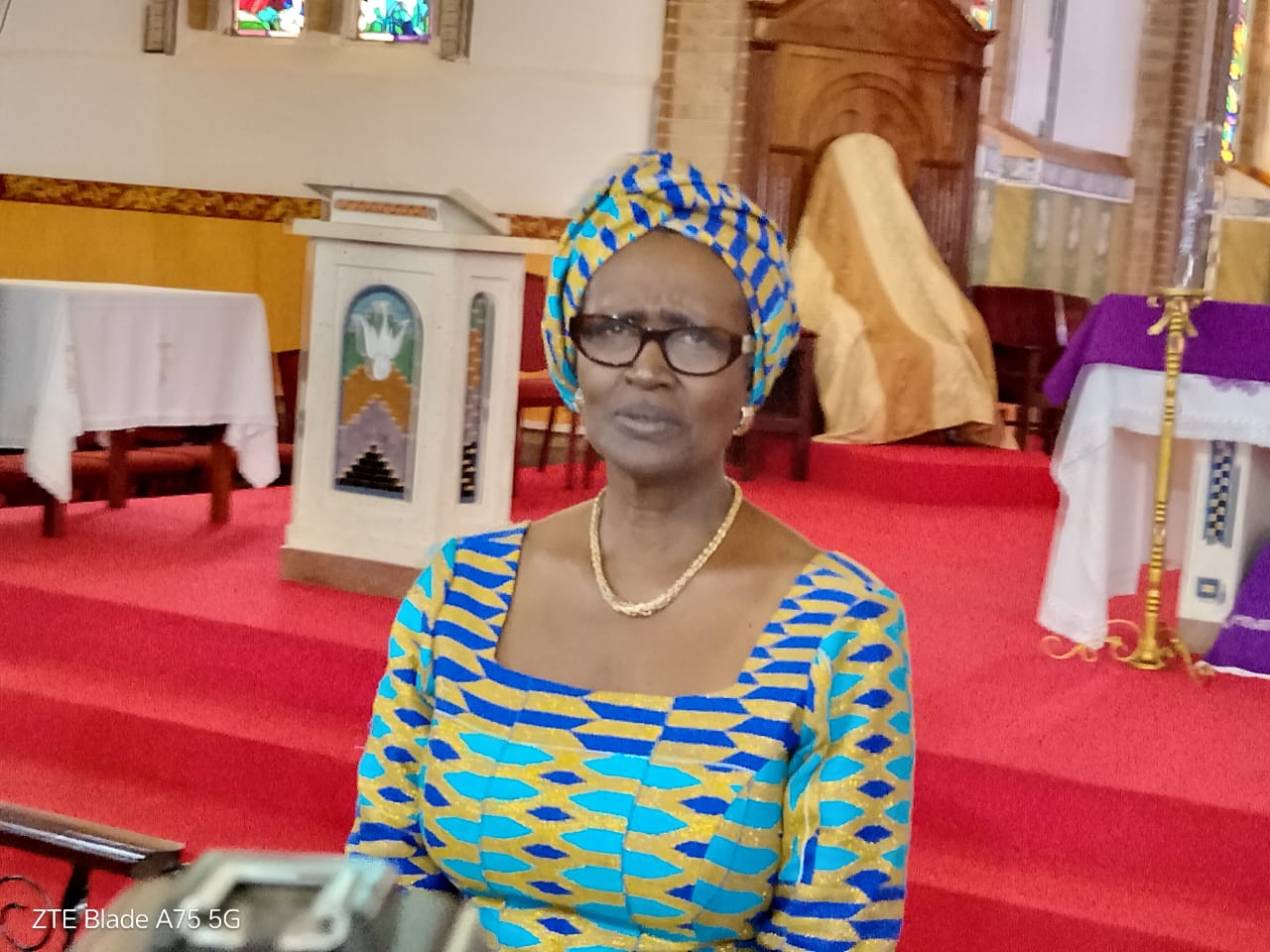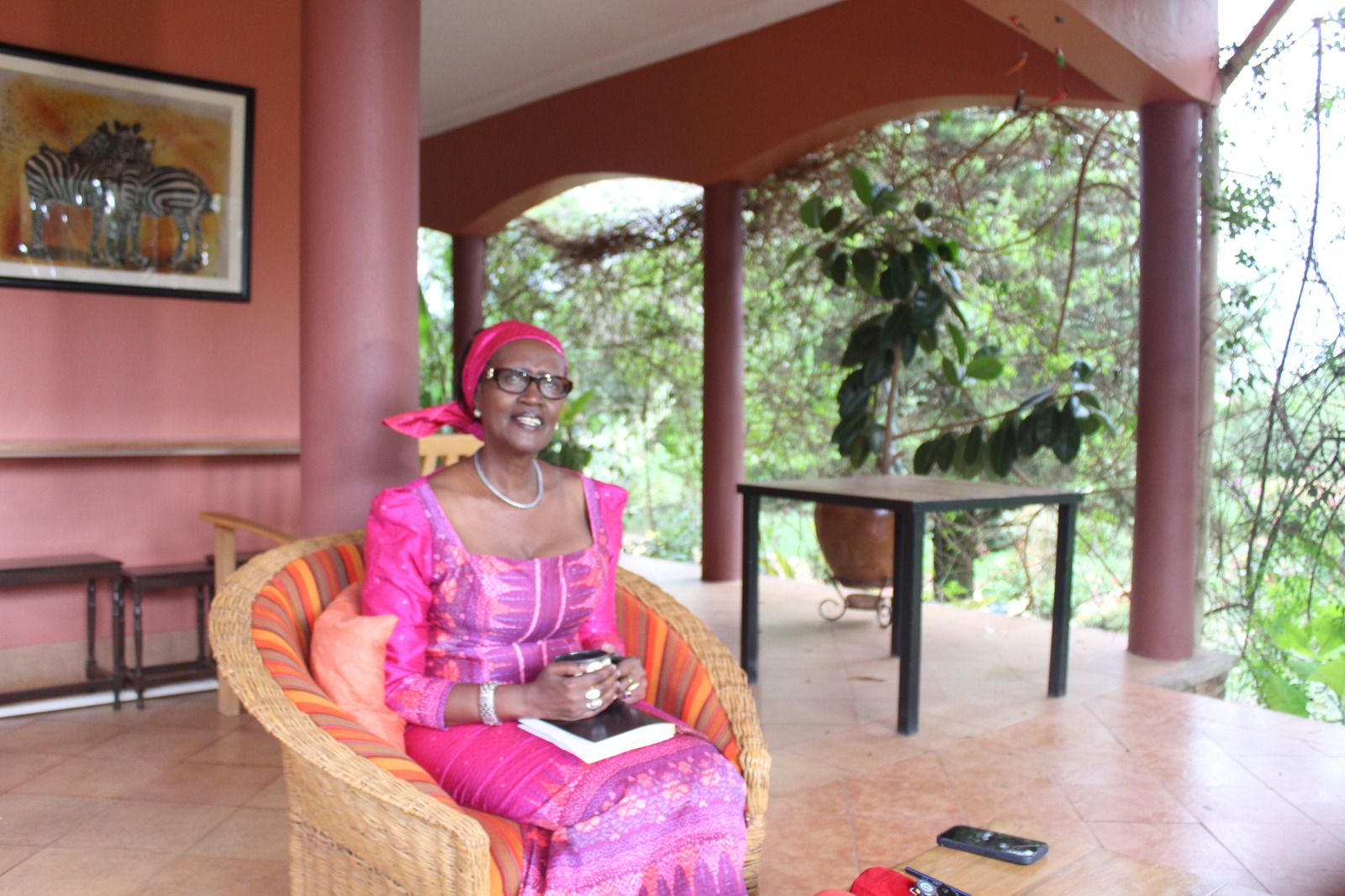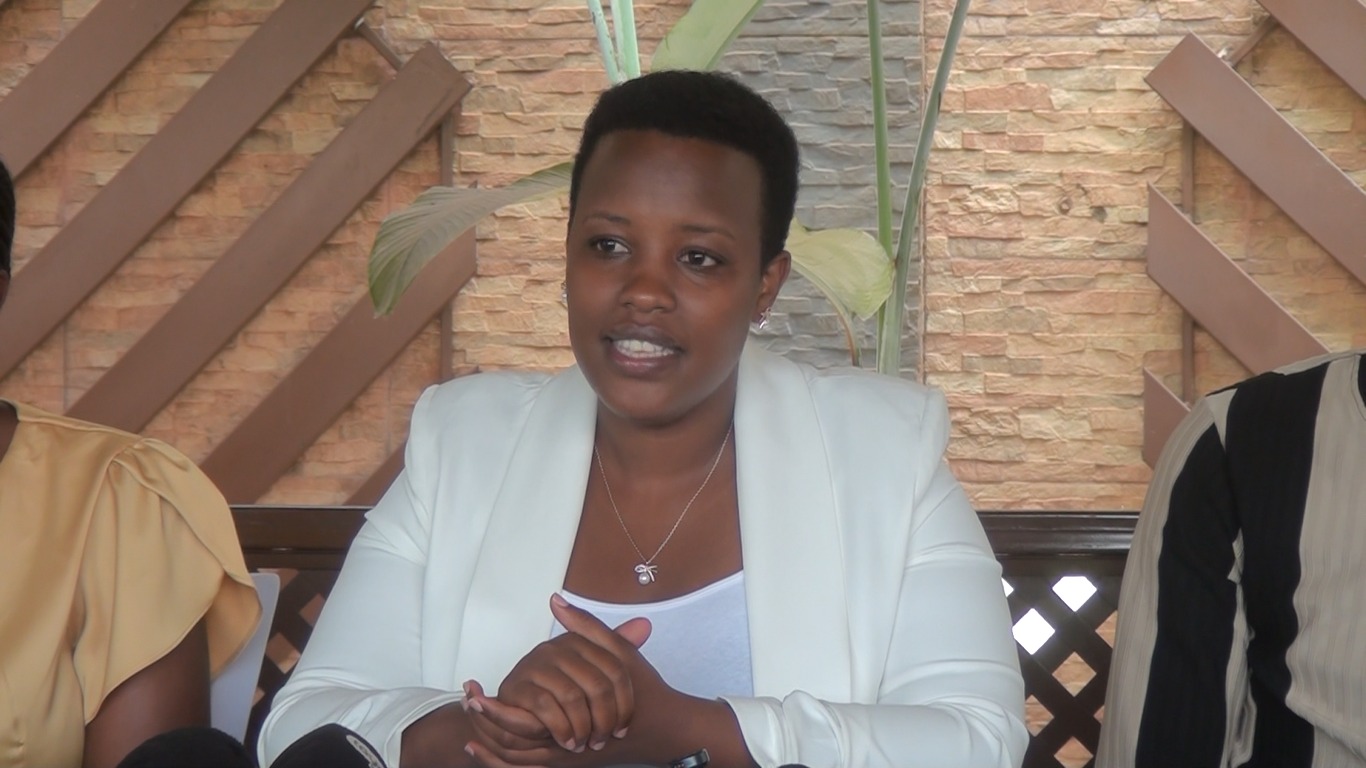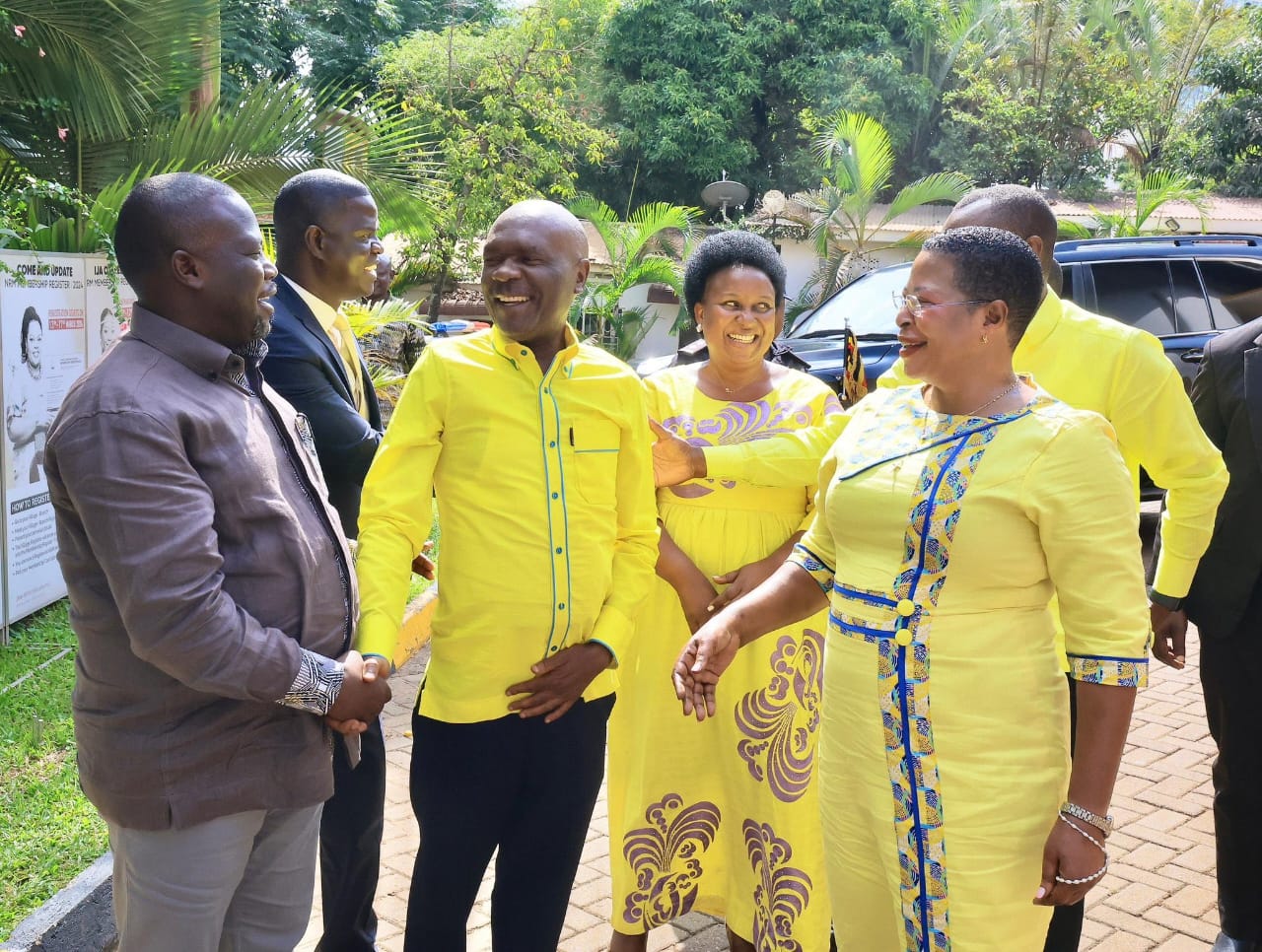President Museveni has called on artisans and entrepreneurs to transition from individual operations to family- or
group-owned companies to ensure sustainability, collective wealth, and intergenerational growth.
Accompanied by the First Lady and Minister of Education and Sports, Janet Kataaha Museveni, the president made the call during a visit to the Kigo Carpentry and Skilling Centre located in Kigo Mutungo, Ndejje Parish, Makindye-Sabagabo Municipality, Wakiso district.
The centre is home to 588 members and offers training in carpentry, metal fabrication, tailoring, and weaving.
Before visiting the skilling centre, the president and his entourage inspected ongoing works on the Salaama Road construction project.
While interacting with the artisans, President Museveni advised them to rethink the traditional approach of fragmented individual work, especially when it comes to managing land and shared resources.
“I want to know who the owner is, you people should form a company and work together. This tendency of working individually is risky. I taught the Banyankore not to divide land when the time for inheritance comes, stay united and work as a family,” the president said.
He further explained that land fragmentation causes inefficiencies, chaos, and stunted progress.
He cited his own family’s example, revealing that he and Janet set up a family company where members contribute to
shared productivity and benefit from collective profits.
“Europeans developed by forming companies through families. That’s how they advanced. Leave backwardness and embrace that model,” he emphasized.
President Museveni also pledged to support the centre’s growth by providing more equipment and financial capital.
He promised to inject Shs500 million into the SACCO to boost production and raw material procurement.
He also noted the importance of proper infrastructure and pledged to work on improving road access to the centre to facilitate easier transportation for buyers.
“All other issues are easy, but the formula for working together is what matters. If you get it right, everything else will follow,” the president said.
He also tasked Balaam Barugahara, the State Minister for Youth and Children Affairs, to sit with the leadership of the centre and streamline ownership structures, user fees, and training strategies to ensure sustainability.
“Right now, you are training people for free. That’s not sustainable. You should have sponsors who pay fees to the centre. You are becoming donors; it’s too early for that. Let’s have a formula that benefits both trainers and trainees,” he added.
The Kigo Carpentry and Skilling Centre was born out of hardship, resilience, and an unexpected moment of presidential intervention.
In 2016, a group of desperate artisans working under harsh conditions in Nsambya boldly blocked President Museveni’s convoy as he returned from Munyonyo.
They pleaded for help, explaining how Kampala Capital City Authority constant evictions had left them vulnerable and without a place to operate.
Touched by their determination, the President responded immediately, visiting them later that year, providing modern carpentry and tailoring machines, and injecting sh100m into their SACCO.
He went a step further and purchased for them land in Kigo, evolving into a thriving centre of 588 skilled artisans, a place they now proudly call home.



